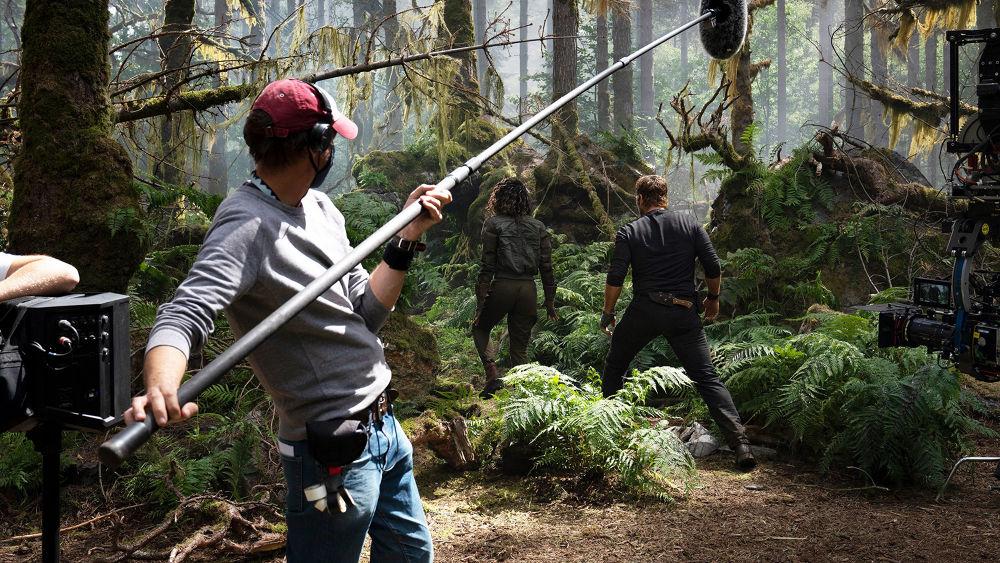Prioritizing Sustainability During Production

The films that comprise the Jurassic World franchise, one of the biggest in the history of cinema, share a common theme: protecting the planet and wildlife. So it made perfect sense for the cast and the crew of Jurassic World: Dominion, from Amblin Entertainment and Universal Pictures, to enthusiastically embrace our NBCUniversal Sustainable Production Program. Launched over a decade ago, the program aims to reduce the environmental impact on set of all directly-produced film and TV productions within the NBCUniversal portfolio.
The film's environmental plan started with a kickoff meeting to develop its own specific sustainability strategy. The team used tools like the NBCUniversal Sustainable Production Infographics and solicited ideas from a production crew eager to make sustainability a priority on set of this latest film in the iconic franchise. The team also brought on an experienced sustainability manager to oversee efforts throughout the production.
The majority of Jurassic World: Dominion was filmed at Pinewood Studios near London, which now runs on 100% renewable energy. Since energy use is always a large part of the footprint of any production, access to renewable power helps reduce that impact. When the production couldn’t tie into grid power, they used generators fueled by renewable diesel, which has approximately 70% less lifecycle carbon emissions than standard diesel. While this isn’t the perfect solution to reducing carbon emissions on set, renewable diesel burns cleaner, keeps the air healthier for cast and crew, and serves as a stepping stone while studios pilot new electric technologies that will meet the unique needs of production.
Even with the challenges of returning to set during the COVID-19 pandemic, the basic practices of the sustainable production program continued to be implemented. This included comprehensive recycling and food waste collection, minimal plastic water bottle usage, and digital paperwork. They also eliminated beef from their menu which is a significant way to reduce impact. And while there was less food waste due to safety protocols, the film still donated more than 2,000 pounds of excess food, equaling approximately 1,660 meals for those in need.
Another area of sustainability focused on the film’s intricate sets. To build set walls, the construction team used plywood that was FSC-certified, which ensures it was harvested responsibly. The silicon and fiberglass molds used to make the animatronic dinosaurs were recycled by a company called Green Clover, which was able to melt the materials down so they could be used again after production. Tons of set materials such as furniture, props, wardrobe, and more were also donated to local organizations around London.
Sustainable solutions were also found in unlikely areas, such as the stunt department. Stunt wire and safety equipment must be brand new in every instance to meet stringent safety requirements, and typically cannot be donated or reused afterwards. However, Extreme Rigging, the company that provided the stunt wire, has developed a process to take the used wire, reduce it to its individual fibers, and turn it into new stunt wire.

